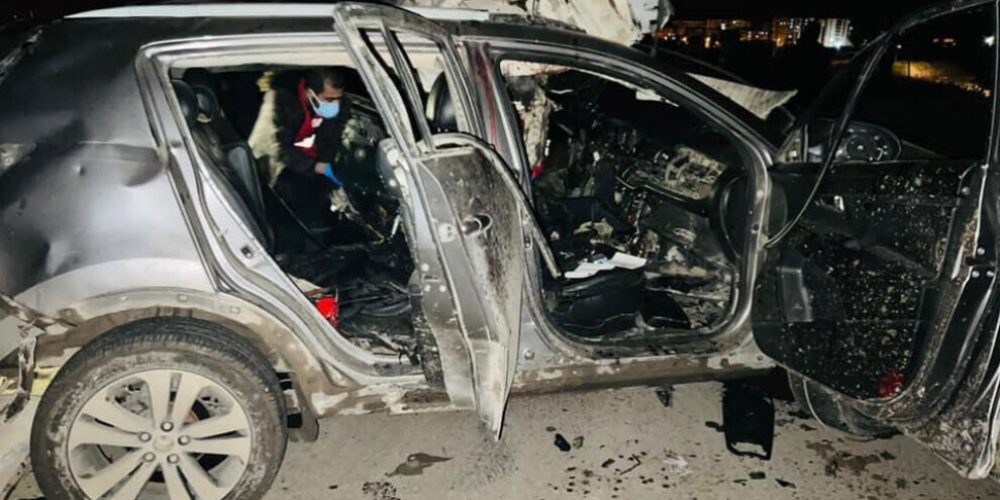Turkish pre-election attacks on North and East Syria
Within the five year rule of AKP-MHP in Turkey, Erdoğan’s strategy has always been to distract from the catastrophic situation within the country by presenting alleged successes in foreign policy. This is why he is selling targeted assassinations, attacks on infrastructure, and the illegal occupation of Syria and Iraq as successful operations against “terrorists”. Although the upcoming election in Turkey draw public attention, the attacks on North and East Syria are less-covered by international media. This is why we want to shed light on the pre-election attacks shortly before the election itself. If Erdoğan’s rule will continue after the election, the invasions, attacks, and war crimes against North and East Syria will continue and therefore pose a serious threat to the lives and well-being of millions of people. The May 14 election in Turkey will have a direct impact on Rojava, North and East Syria and the situation in Syria as a whole.
Targeting those fighting ISIS
In the preface to the election, Turkey has carried out various attacks on North and East Syria as well as in Southern Kurdistan (Northern Iraq) that targeted AANES personnel. On April 7, the Turkish state attacked a convoy near Suleimani International Airport. This attack was a targeted attempt on the life of Mazlum Abdi of the SDF General Command. The convoy included three US military officials and members of the Counter-Terrorism Group (CTG) of the Kurdistan Regional Government in Southern Kurdistan. Mazlum Abdi had been to Southern Kurdistan to organize joint efforts in the fight against ISIS, and strengthen ties with with the Patriotic Union of Kurdistan (PUK). Luckily this attack resulted in no causalities, but Turkey followed two aims at the same time. Firstly, the AKP-MHP regime targeted Mazlum Abdi not just as a person but the attempt to strengthen the Kurdish national unity that the SDF and the AANES are building with the PUK.
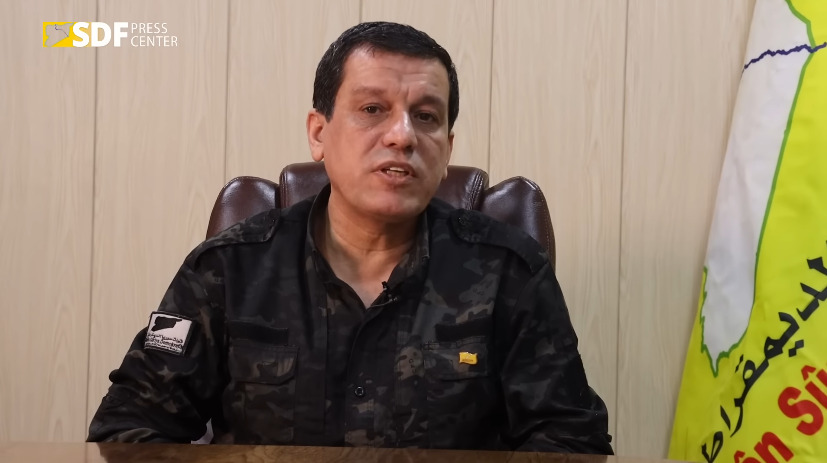
As became clear with the attack, Turkey wants to cut these ties by any means, even by carrying out military action. Turkey aims to isolate the AANES within the wider Kurdish framework and keep other Kurdish entities, such as the PUK, away from the AANES. Secondly, the Turkish regime used the attack to sabotage the joint efforts in the fight against ISIS. It is not the first time that Turkey has attacked those who are committed to fight ISIS, but a continuation of a well-planned strategy. The timing of the attack against Mazlum Abdi was of course not a coincidence. The AKP-MHP regime would have used a successful assassination as a powerful mobilization tool for the election. By impressing the ultra-nationalist parts of society, Erdoğan aimed to increase his own prestige and gain votes. Having 90% of the national media under government control, Erdoğan would have had an easy game depicting a successful assassination as a means of propaganda.
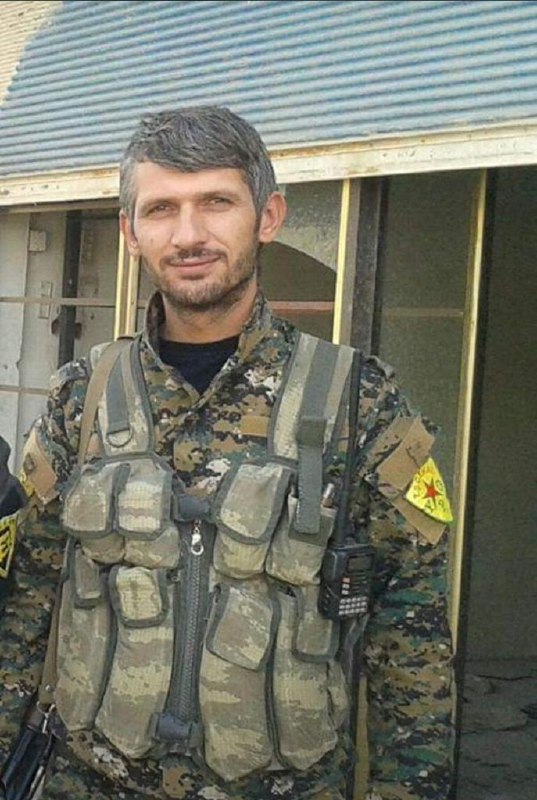
In order to hide the Turkish attempts to hinder the anti-ISIS fight, Erdoğan deceived the public by announcing on April 30, two weeks before the election, that Turkey’s National Intelligence Organization had killed ISIS leader Abu al-Hussein al-Husseini Al-Qurashi in an operation in Syria. Remarkable in this piece of pre-election propaganda, is that the site of the operation lies within the Turkish occupied territories of Northern Syria – an area that is known for harboring ISIS leaders, all under the control of the Turkish government.
Another attack on someone committed to fighting against ISIS happened on April 14, when Turkey targeted the car of YPG member Baran Nisebin. He was martyred as a result. Baran, originally from Nusaybin (the Turkish city across the border from Qamishlo), came to Kobane when ISIS launched a major attack on the city in 2014. He participated not just in liberating the city of Kobane, but subsequently in many operations against ISIS such as Manbij, Raqqa, and Deir ez-Zor, and therefore played an important role in the defeat of ISIS. Our forces did not just save North and East Syria from the barbarism of ISIS – we paid the price of 11,000 martyrs to protect the whole of humanity from them.
On May 5, a Turkish drone struck an SDF position in Til Hemis. The two fighters who were martyred in the attack had been responsible for the safe detention of ISIS families in al-Hol camp. Al-Hol camp houses tens of thousands of ISIS families, including thousands of foreigners. The indoctrination of children with extremist ISIS ideology by ISIS women makes the camp a breeding ground for a new generation of ISIS. Sleeper cell activity, murders, and break out attempts are a risk for the region as well as for international security, given that the camp houses detainees from 60 different countries. Assassinating those who take care that no break out attempts happen is playing directly into the hands of an ISIS resurgence.
On May 11, a Turkish armed drone carried out an air strike on a vehicle in in the town of Çelebiyê (Jalabiyya), which lies between Kobanê and the occupied Girê Spî. YPJ member Cûdî Egîd was martyred in this attack. Born in Amed, Northern Kurdistan, Cûdî came to Rojava due to the attacks of ISIS. As a member of the YPJ, she fought relentlessly against barbarism and the mentality of genocide and occupation. With attacks like these, the Turkish state wants to eliminate the leaders of the women’s revolution of North and East Syria.

Turkey’s war against civilians
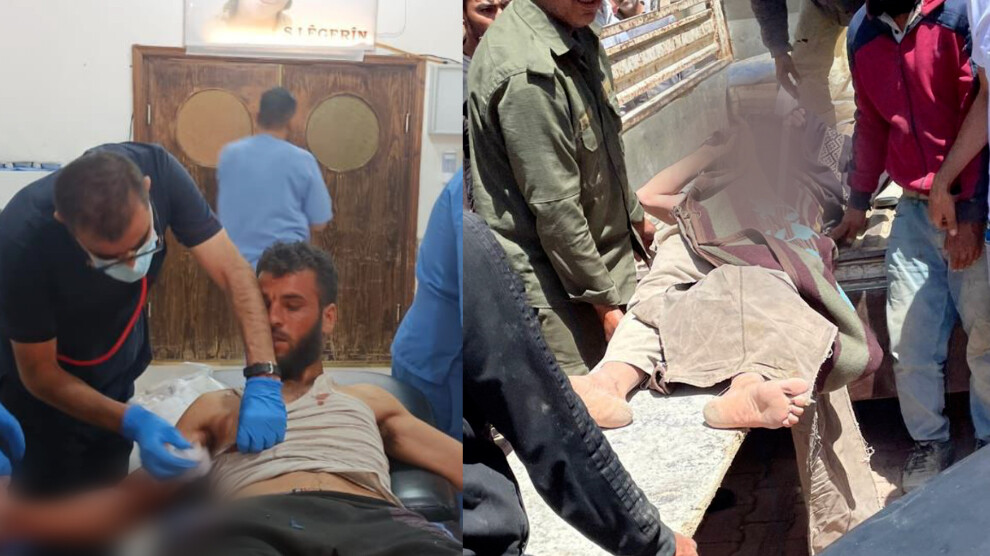
Turkey not only targets military personnel, but also civilians. On April 24, the Turkish army attacked the village of Elebid near Til Temir. Three children, aged 8, 9, and 10, were killed by the attacks and two others injured. In 2022, 12 children were killed in Turkish attacks and 59 more were wounded. In 2023 so far, five civilians in North and East Syria have lost their lives due to the Turkish attacks.
On May 11, the Turkish army and its Islamist allies attacked the village of Til Leben (southwest of Til Temir) with mortars and artillery. As a result of the attack civilian Mihemed Ebdulfetah Hisên (38) was killed while working in a field. In the same attack, three other civilians, Xalis Hec Hozeyfa (35), Ebdullah Elêwî (27), Îbrahîm Geraf (38), and Hafiz Muhemmed Geraf (27), were injured.
While speculations are made on whether Turkey will launch attacks on the AANES before or shortly after the election, cross-border attacks and drone flights are happening on an almost daily basis. In April 2023, the month before the election, Turkey carried out 163 air and ground attacks on North and East Syria, including five drone strikes. The airspace over the region was consistently violated in April, in 643 cases by drones, 25 times by fighter jets, and seven times by helicopters.
Erdoğan seeks to convince the voters that the security of Turkey is being threatened by the SDF and AANES. In doing this, he aims to represent himself as the one fighting “terrorism”. The Turkish government’s understanding of terrorism only serves to mislead the public by demonstrating Erdoğan as someone allegedly establishing safety and security. The number of civilian casualties, and the fact that Turkey kills those who are fighting against ISIS, makes it clear that the Turkish government itself is in fact who is committing acts of terror.
Erdoğan gathering allies against the AANES
Another aspect of Erdoğan’s pre-election strategy is gathering allies and strengthening positions against the AANES. Although being a long-term opponent to Syria’s Assad government, Erdoğan is using any means possible when it comes to building anoppositionto the AANES, and therefore seeks to normalize its relationships to Damascus. With the help of Russia, Erdoğan seeks toconvince Assad of a common strategy against the AANES. On April 25, a meeting between the foreign ministers of Syria, Iran, Russia, and Turkey was organized in Moscow at the request of Erdoğan. According to the published information the meeting was not as successful as the initiators hoped, and many conflicts arose between attendants. It became clear that Erdoğan uses the topic of Syrian refugees as a pretext to solidify the occupation of Northern Syria and therefore to legitimize the attacks on the AANES.
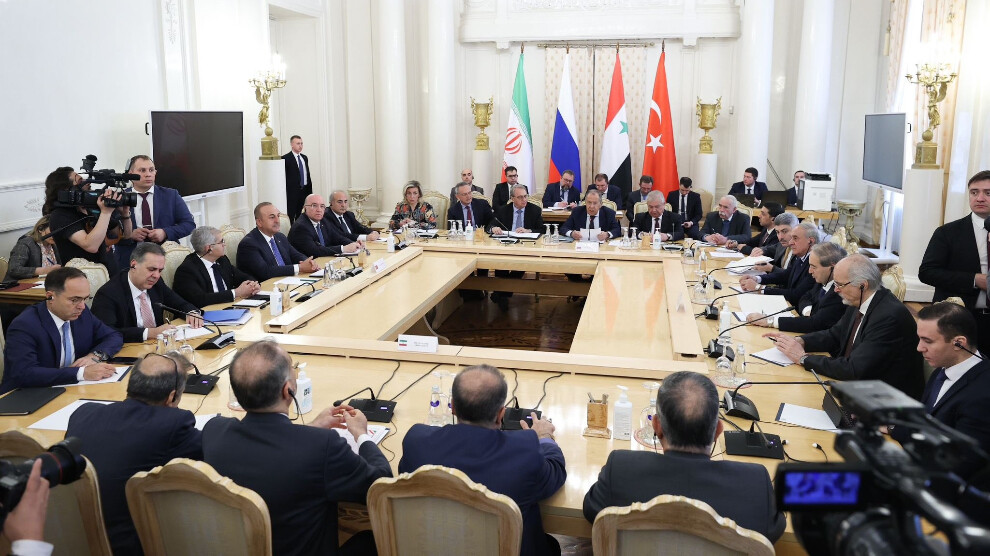
While the Turkish foreign minister stated that they want to maintain security and stability for the Syrian refugees, it is well known that the situation of Syrian refugees in Turkey is shaped by devastating living standards, humiliation, and violent racism that has been stirred up by politicians and has even led to murders. On May 10, just four days before the elections, the meetings in Moscow continued. The outcome of the meeting is still unclear but it is obvious that these meetings will never solve the crisis within Syria, but are seeking to uphold and intensify the Turkish attempts to crush the democratic system of the AANES. At the same time these meetings are being held, the AANES presented nine points to achieve a peaceful and democratic solution for Syria. This initiative that has founded wide support among Arab tribes, civil society, and different cultural components of Syria could put an end to the suffering of millions of Syrians and is therefore a serious attempt to create stability within the region.
May 14 election will impact the situation of the whole Middle East
With all eyes on the election it is important to raise doubt about the election process itself. The lack of democratic principles, the wave of repression against opposition politicians, the lack of independence of the High Electoral Board, and the high chance of electoral fraud are great concerns that need to be taken into consideration when talking about the elections. With the current authoritarian system ruling in Turkey, it has become clear that these elections can not be seen as a democratic tool to reshape politics. It is highly likely that Erdoğan will use the elections to justify his system. Given that he has never hesitated to arrest opponents en masse, to use military aggression for his political aims, to violently occupy foreign lands, and to use chemical weapons, it can be assumed that he will also use any means possible to turn the election into a tool to justify his power. In the case that he loses, it is possible that he would order the electoral commission to annul the results and ask for a new election. It would even be likely that he uses armed paramilitary groups to take power outright. No matter what, Erdoğan wont step out of power easily.
If the authoritarianism of the one-man system will be preserved,
the attacks on North and East Syria will intensify
It has become clear that if the authoritarianism of the one-man system will be preserved, the attacks on North and East Syria will intensify. As it was before the aerial attacks against the AANES in November 2022, the AKP-MHP regime could even fake provocations and provide a reason for a possible further ground invasion into Northern Syria. This would jeopardize not just the security of millions of people but also the important democratic gains made by the AANES. For North & East Syria then, the May 14 election has therefore turned into a game of fate rather than an ordinary election. The different pre-election propaganda strategies and games played by Erdoğan and the AKP-MHP regime are games being played with the lives of the peoples of Turkey, Syria, Iraq, and many other countries who will be affected by the outcome of the election. If the democratic forces are able to tear down the rule of Erdoğan and the fascist AKP-MHP alliance, it could open a door not just to the democratization of Turkey as a country, but the Middle East as a whole.
This is the last part of our three part series of article. Read Part 1 on the situation in Turkey after five years of AKP-MHP rule and Part 2 on the Turkish aggression on North and East Syria during 5 years of AKP-MHP government.

